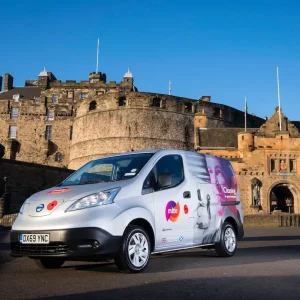Many of the key benefits of long-term rental are already widely recognised.
Like all rental, it can help to resolve persistent issues surrounding grey fleet usage and ensure employees have access to the latest, low-emission vehicles.
But the flexibility and convenience of long-term rental is fast becoming even more relevant and useful in a period of continuing change.
Fleet and HR executives are attempting to pinpoint mobility solutions that are right for their organisations without automatically defaulting to long-term financing.
The cost of funding has increased dramatically for businesses of all sizes, resulting in fleets appraising the potential of long-term rental to meet their needs in a more cost-efficient way.
Separately, the lead times for new company car delivery continues to be high – sometimes as long as six months – making long-term rental a great stopgap solution.
Fleets appraising EVs as a solution for both the organisation and drivers see long-term rental as a way to access EVs cost-effectively.
For example, can employees easily charge EV cars and vans at their workplace as well as their homes? Do they need to amend – or curtail – their journeys to avoid range anxiety? Could EVs prove a useful tool at the heart of your organisation’s decarbonisation strategy?
The data that’s captured from the use of these long-term rental EVs via plug-in telematics can be utilised and interpreted to formulate an even more appropriate travel strategy.
The ‘zero commitment’ nature of long-term rental means that you can return any cars and vans that are no longer required as projects conclude or reduce in size. Conversely, the number of vehicles can easily be increased if projects are scaled up.
It can also work well to provide new team members placed on short-term probationary periods with a fully-maintained vehicle ensuring duty-of-care compliance.
We’re noticing at Enterprise, that younger generations don’t automatically want to commit to a car when they join a new organisation though they may occasionally need to use one.
Consequently, it’s becoming more important than ever to consult with colleagues to and ensure travel policies and mobility options suit both the organisation’s and employee’s specific requirements.
A basket of different travel options that includes long-term rental as well as daily rental, car clubs and multi-modal options including public transport and active travel empowers employees to make the best choice for them and can read to mileage and carbon reductions.
Technology can ensure strict compliance to travel policies, guide employees towards more appropriate choices and enable businesses to capture data on day-to-day business travel, which can be backed up with telematics devices to capture actual journey data.
Data will reveal insights that will help businesses ‘rightsize’ the length of commitment to vehicles.
Most businesses have always been aware that they will need long-term rental for some of their employees at some point. A competitive advantage could await those fleets that identify the many benefits of this approach.
Paul McCorkell is director of business rental UK & Ireland at Enterprise





